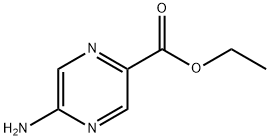Hi, I wanted to ask about giving my baby Tylenol after getting vaccinations. I’ve heard some people say it’s not a good idea to give it right away. Could giving Tylenol after vaccines affect how the baby’s immune system responds or interfere with the benefits of the shots? Are there better ways to manage fussiness, fever, or discomfort after vaccination without causing other issues? What’s the safest approach for soothing my baby after vaccines?
Why Not to Give Baby Tylenol After Vaccines and What to Consider Instead
Related Encyclopedia

- 60603-13-6
- C13H16N2O5S
- 312.34200
- All (0)
- China (0)
- (0)

- 103-90-2
- C8H9NO2
- 151.16
- All (35)
- China (32)
- (35)
- 20675-21-2
- C14H19NO3
- 249.30600
- All (0)
- China (0)
- (0)

- 64315-36-2
- C8H5D4NO2
- 155.18700
- All (0)
- China (0)
- (0)

- 3251-55-6
- C9H11NO3
- 181.19000
- All (1)
- China (0)
- (1)

- 1693-37-4
- C9H11NO2
- 165.19
- All (1)
- China (0)
- (1)

- 120595-80-4
- C14H16NNaO8
- 349.27
- All (0)
- China (0)
- (0)

- 956595-86-1
- C26H34N2O4
- 438.55900
- All (0)
- China (0)
- (0)

- 16110-10-4
- C14H14D3NO8
- 330.30500
- All (0)
- China (0)
- (0)
- 756835-98-0
- C18H19N3O3
- 325.36200
- All (0)
- China (0)
- (0)
Related Products More >
-
- 103-90-2
- 1.0000
- GlassBottlekg
-
- 3251-55-6
- Request For Quotation
- Bottle,barrel,cargo,container,etc.
-
- 3251-55-6
- Request For Quotation
-
- 1794817-30-3
- Request For Quotation
- 25kg/Cardboard Drum
-
- 1693-37-4
- Request For Quotation
-
- 103-90-2
- Request For Quotation
- Bag
-
- 103-90-2
- Request For Quotation
- 25KG
-
- 103-90-2
- Request For Quotation
- 25kg/Cardboard Drum




For example, in routine pediatric practice, infants receiving multiple vaccines may exhibit mild fever or irritability as part of the normal post-vaccine response. These symptoms reflect the immune system actively learning to recognize pathogens. Giving Tylenol too early can mask these signs and, in some cases, blunt the intended immune stimulation. Clinicians often advise observing the infant first and using acetaminophen only if fever or discomfort reaches a threshold that impacts feeding, hydration, or sleep.
This approach balances symptom management with optimal immunogenicity. In practical terms, parents can use non-pharmacologic comfort measures, such as swaddling, skin-to-skin contact, or gentle rocking, to soothe the infant without affecting vaccine effectiveness. Timing and selective use of Tylenol help ensure that the vaccines provide their full protective benefit while maintaining the infant’s comfort, illustrating the interplay between pharmacology, immunology, and everyday pediatric care.
This effect differs from treating severe fever, which can be harmful; the concern lies in routine use for mild symptoms. Unlike severe fever (over 101.5°F in infants), which may stress the body, low-grade fever post-vaccination is a sign the immune system is responding appropriately. Tylenol’s interference with this response could reduce the vaccine’s effectiveness, as the body’s natural inflammatory signals play a role in training immune cells.
A common misconception is that tylenol is harmless for preventing discomfort, but unnecessary use risks weakening the immune memory. It should be reserved for significant symptoms—persistent fever, severe pain—to balance comfort with immune efficacy. For mild fussiness or low fever, comfort measures like cuddling or lukewarm sponging suffice, allowing the immune system to complete its adaptive process unimpeded.
Understanding this balance ensures babies develop strong, lasting immunity while managing genuine discomfort, avoiding unnecessary interference with the vaccine’s intended mechanism.
Chemically, acetaminophen’s mechanism extends beyond fever reduction; it alters the body’s inflammatory signaling pathways, which are critical for mounting an effective immune defense. While short-term use may not drastically impair immunity in most cases, some studies suggest that routine prophylactic administration could blunt antibody titers, particularly for certain vaccines like those targeting hepatitis B or inactivated poliovirus. This is especially relevant for infants, whose immune systems are still maturing and rely on robust initial responses to establish long-term protection.
In practical terms, healthcare providers now recommend reserving acetaminophen for cases where fever exceeds 102.2°F (39°C) or causes significant distress, rather than administering it preemptively. This approach balances pain management with immune function preservation, aligning with guidelines from organizations like the American Academy of Pediatrics. Parents are advised to monitor their baby’s temperature and comfort level, using non-pharmacological methods like cool compresses or gentle rocking to soothe mild reactions.
From a broader perspective, this shift reflects evolving understanding of vaccine immunology and the importance of minimizing unnecessary interventions. Pharmaceutical companies continue to refine pediatric formulations to reduce side effects, while public health campaigns emphasize the safety of vaccine-related fever as a sign of active immunity. By avoiding routine acetaminophen use, caregivers support the development of stronger, more durable immune responses, ultimately enhancing the effectiveness of childhood immunization programs and reducing disease susceptibility later in life.